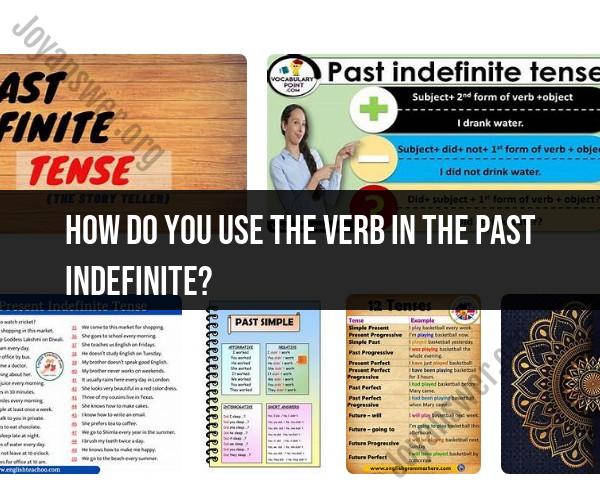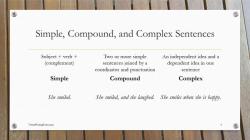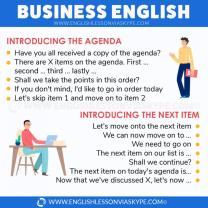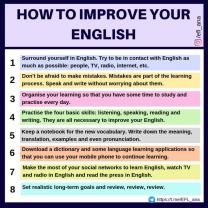How do you use the verb in the past indefinite?
The past indefinite verb tense, also known as the simple past tense, is a fundamental concept in English grammar. It is used to describe actions or events that happened in the past and are completed. Understanding its usage is crucial for effective communication and writing. In this guide, we will explore the key aspects of the past indefinite tense.
Key Aspects:
- Formation of Past Indefinite Tense: Learn how to form the past indefinite tense for regular and irregular verbs.
- Usage in Statements: Understand how to use the past indefinite tense to describe completed actions in statements.
- Usage in Questions: Explore how to form questions using the past indefinite tense.
- Negative Sentences: Learn how to create negative sentences in the past indefinite tense.
- Time Expressions: Discover common time expressions that are often used with the past indefinite tense.
Examples:
Let's examine some examples to illustrate the usage of the past indefinite tense:
Formation of Past Indefinite Tense:
Regular Verbs: He played football yesterday.
Irregular Verbs: She ate lunch an hour ago.
Usage in Statements:
They visited the museum last weekend.
Usage in Questions:
Did you enjoy the movie yesterday?
Negative Sentences:
We didn't watch TV last night.
Time Expressions:
Yesterday, she studied for the exam.
Importance:
The past indefinite tense is crucial for accurately conveying past events and actions in written and spoken English. It enables effective storytelling, describing historical events, and discussing experiences that have already occurred. Proper usage of this tense enhances clarity and coherence in communication.
Conclusion:
Mastering the past indefinite verb tense is essential for anyone looking to communicate accurately and effectively in English. By understanding its formation, usage in various sentence types, and associated time expressions, you'll be able to express past events and actions with clarity and precision. Incorporate the past indefinite tense into your language skills to enhance your overall fluency and communication abilities.












